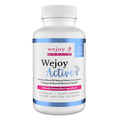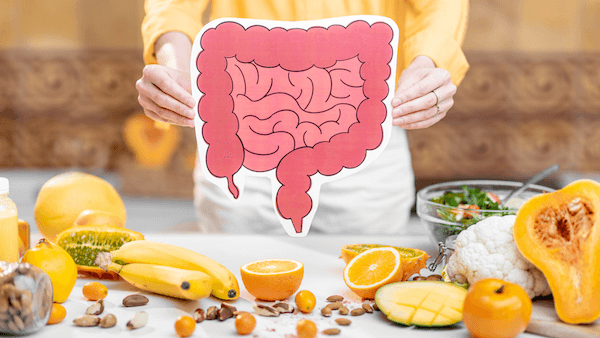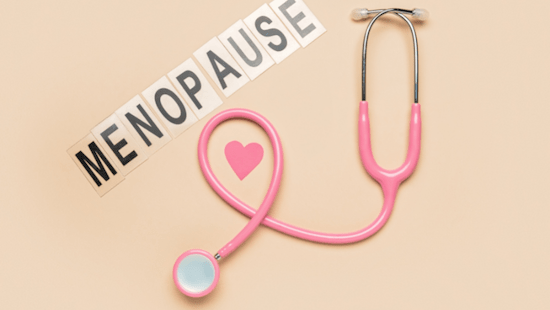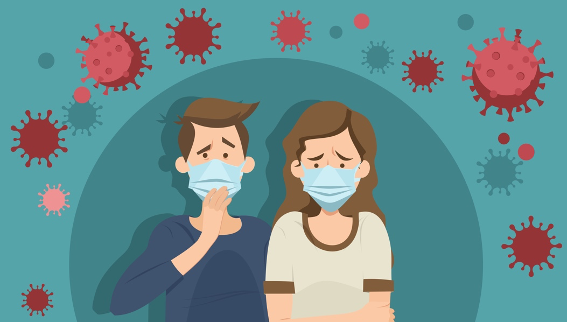Menopause & Joint Pain - 4 Natural Remedies That You Didn’t Know About
Menopause & Joint Pain - 4 Natural Remedies That You Didn’t Know About
Menopause is a natural stage in a woman's life when she reaches 45-50 years old. This brings about changes in her body that can lead to some unpleasant symptoms like hot flashes, mood swings, and joint pain. Joint pain is one of the most common issues for many women during menopause. Some might feel more stiffness, swelling, and pain in their joints.
The good news is, there are plenty of natural ways to help ease the joint pain and other symptoms that come with menopause.
⦁ Exercise Regularly

Exercise is one of the best natural remedies for joint pain during menopause.
By being physically active regularly, you're actually helping your joints feel better. How? By strengthening the muscles around them, it takes some of the pressure off and reduces pain. Doing simple exercises just as practising yoga can also help to build up the muscles and give your joints more support.
Also, keeping a healthy weight is key. It lowers the risk of getting conditions like osteoarthritis that can lead to joint pain. Doing aerobic exercises like brisk walking, cycling or swimming can help improve blood flow and ease the pain.
A study published in the Journal of Women's Health in 2011 found that regular exercise was effective in reducing joint pain and other symptoms associated with menopause.
⦁ Eat a Healthy Diet

Eating a balanced and nutritious diet can help reduce joint pain and other symptoms of menopause. Certain foods, such as those high in omega-3 fatty acids, antioxidants, and anti-inflammatory compounds, can help reduce inflammation in the body and ease joint pain. Foods such as fatty fish, nuts, seeds, and fruits and vegetables are high in these compounds.
There have been several studies that have investigated the relationship between a healthy diet and reduced joint pain. One study published in the "Journal of the Academy of Nutrition and Dietetics" found that a diet rich in anti-inflammatory foods, such as fruits, vegetables, whole grains, and lean proteins, was associated with reduced joint pain and improved overall health in people with osteoarthritis.
Another study found that higher intakes of vitamin C, vitamin D, and calcium were associated with a reduced risk of knee osteoarthritis. Hence, a healthy diet rich in vitamins C and D, calcium, and iron, is essential to reduce joint inflammation and improve joint health.
The No.1 Women's Supplement For Joint Pain
⦁ Acupuncture

Acupuncture is a traditional Chinese therapy that involves the insertion of fine needles into specific points on the body. This therapy has been shown to be effective for reducing joint pain and other symptoms associated with menopause.
The needles work by triggering the release of endorphins, which are like natural painkillers made by your body. They also improve blood flow, cut down on inflammation, and help you relax, all of which can make your joint pain go away.
A study published in the Journal of Alternative and Complementary Medicine in 2009 found that acupuncture was effective in reducing joint pain and other symptoms associated with menopause. The study involved a group of women who received acupuncture treatments, and the results showed that they experienced significant reductions in joint pain, stiffness, and swelling compared to a control group who did not receive acupuncture.
⦁ Herbs and Supplements
Herbs and supplements that can help ease joint pain during menopause. Ginger is a well-known anti-inflammatory herb that can help you feel less joint pain and swelling. And turmeric is another herb that works great for reducing joint pain. Plus, it's a powerful antioxidant that's good for your overall health.
MenoRelief is a dietary supplement that contains a blend of natural ingredients, including Ashwagandha KSM-66, Turmeric, and Lion's Mane Mushroom. These ingredients have been used for ages in traditional medicine because they're believed to help with joint health.
Ashwagandha KSM-66 has been shown to have anti-inflammatory and analgesic effects, which can help relieve joint pain. In addition to its pain-relieving effects, Ashwagandha KSM-66 has also been shown to improve joint mobility and function, which can further help reduce joint pain and improve overall joint health.
Turmeric and Lion's Mane has been shown to have anti-inflammatory effects and support joint health. They work by reducing oxidative stress and inflammation in the joints, which can contribute to joint pain and degradation.
Conclusion
In conclusion, menopause can be a challenging time for many women, but joint pain and other symptoms can be effectively managed with the right natural remedies. Give MenoRelief a try and say goodbye to joint pain and stiffness… starting from today!














POST COMMENTS